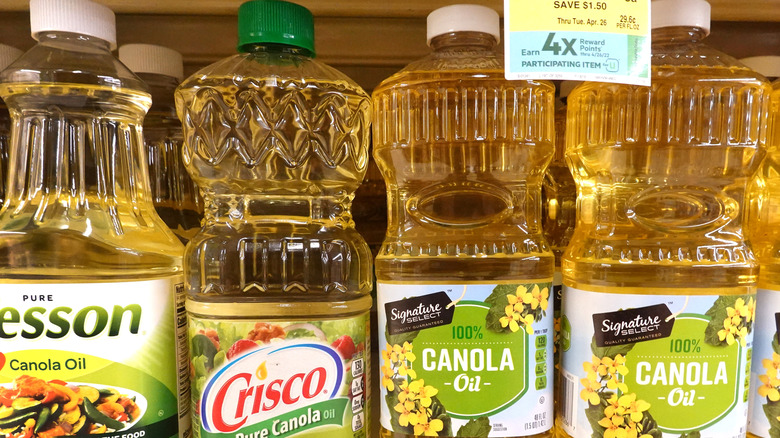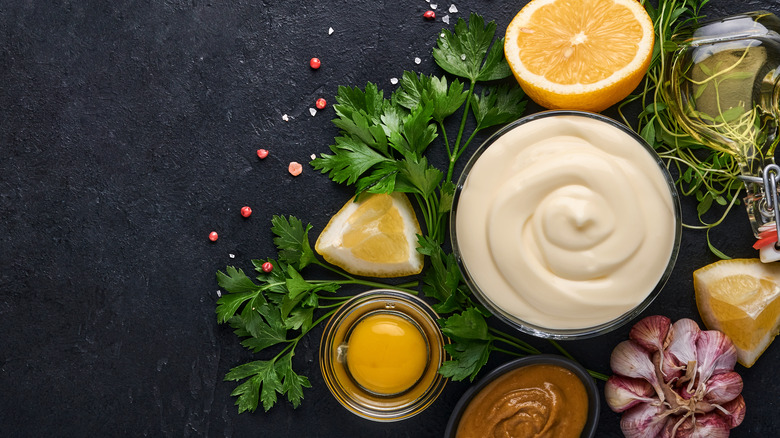These Healthy Swaps Could Replace Your Cooking Oil
Whether you are baking, cooking, roasting, or frying, cooking oil is a common kitchen staple used to make many meals. It's no secret that some cooking oils are healthier than others (via WebMD). Some of the best choices include olive oil and avocado oil. But what if you could cook without oil altogether? There are several alternatives that can replace cooking oils, even the healthier ones.
According to Healthline, suitable substitutes for cooking oil include mashed or pureed fruit like bananas and apples. These options are commonly used in baked goods and can be swapped using the same ratios as you would with oil. Some dairy products are also a healthy switch, including yogurt and sour cream (per Delish).
If you're dairy-free, consider a vegan option like soft or silken tofu to add moisture (via Livestrong). Dr. Amy Shapiro, a registered dietitian, tells Livestrong, "Tofu is also a great choice for those with food or dairy allergies."
These substitutions can add nutrients and make your meal healthier.
Benefits of oil-free cooking
There are several reasons you may want to consider going oil-free. According to Healthline, the use of cooking oils has significantly increased in the last 100 years. While some cooking oils appear to be health-friendly, some experts are wary of the overconsumption of omega-6 fatty acids. According to the Mayo Clinic, omega-6 is a type of polyunsaturated fat. This is found in foods including vegetable oils, nuts, and seeds. It can safely be consumed in moderation, but too much of it might have harmful consequences, particularly when not balanced by omega-3 fatty acids. Decreasing oil consumption might reduce inflammation of the joints that leads to arthritis, according to Gift of Health, a non-profit co-founded by physicians Dr. Arjun Rayapudi and Dr. Shobha Rayapudi.
If going oil-free is not a realistic option, it ultimately comes down to the type of oil you choose to consume. The American Heart Association recommends olive, corn, canola, and sunflower oils, among others. Look for oils with no trans fats or partially hydrogenated oils, and no more than four grams of saturated fat per tablespoon.


